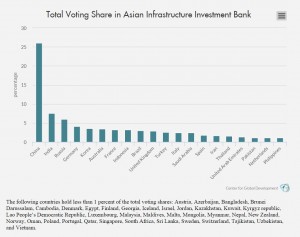Guest post by Jeff Mosenkis of Innovations for Poverty Action.
- Why don’t farmers spend more on better inputs? A new paper by Bold, Kaizzi, Svensson, and Yanagizawa-Drott suggests it may be rational. When they tested seed and fertilizer being sold in Uganda they found 30-50 percent being sold to farmers are counterfeit or adulterated. (Also see this post by Yanagizawa-Drott on using market forces to fight counterfeit malaria meds.)
- And the great blog Boring Development is looking to talk to people who have experience in Uganda with bad seeds or fertilizer (or ag projects that failed because the seeds didn’t grow as they were supposed to).
- On the Guardian’s site, Secret Aid Worker asks – does anybody know if celebrity visits to poor areas help? Often the work needed to find a diet coke in a refugee camp outweighs the benefit of an actor nobody there has heard of.
- And Chris Martin from Coldplay visited a school in India!
- On the Econ Talk podcast, economist Russ Roberts interviewed Harvard psychologist/philosopher/neuroscientist Joshua Greene, who does brain scanning research to understand how people make decisions involving tradeoffs, particularly moral ones. It gets really good when they get into how our moral wiring makes for tricky policy decisions when doing the most good conflicts with our instincts.
- We reported on the new development bank being led by China, which the US had discouraged other countries from joining (presumably out of fear about growing Chinese influence in developing countries). Scott Morris and Mamoru Higashikokubaru from CGD, analyzed the newly announced voting structure and well, here-
- But Laura Seay interviewed journalist Howard French, on the Washington Post Monkey Cage blog about his new book on Chinese involvement in Africa. He argues that Chinese involvement in developing countries is usually beneficial for both, and despite American fears, African leaders know what they’re doing and aren’t about to become puppets of China. He also points out much of the fear-based discussion in the West lacks voices from either Africa or China.
If you got away without taking econ 101 or your family wants to understand why you keep talking about “opportunity costs” of visiting, the Crash Course YouTube channel which does entertaining 5-10-minute lessons on many topics, is starting 40 short lessons explaining economics for lay-people.
Plus, you’ll never have to deal with this on a final exam:
https://twitter.com/shaunhin/status/616378904752848896


2 Responses
Possible alternative behavioral econ explanation: Students could choose 6 purposefully to make everyone get 0 points to avoid “unfair” outcomes, similar to individuals who turn down non-zero but very unequal ultimatum game offers. This might be especially true in a world where relative gains are important (i.e. a course graded on a curve).
RT @cblatts: IPA’s weekly links http://t.co/N9MoXHGAy9